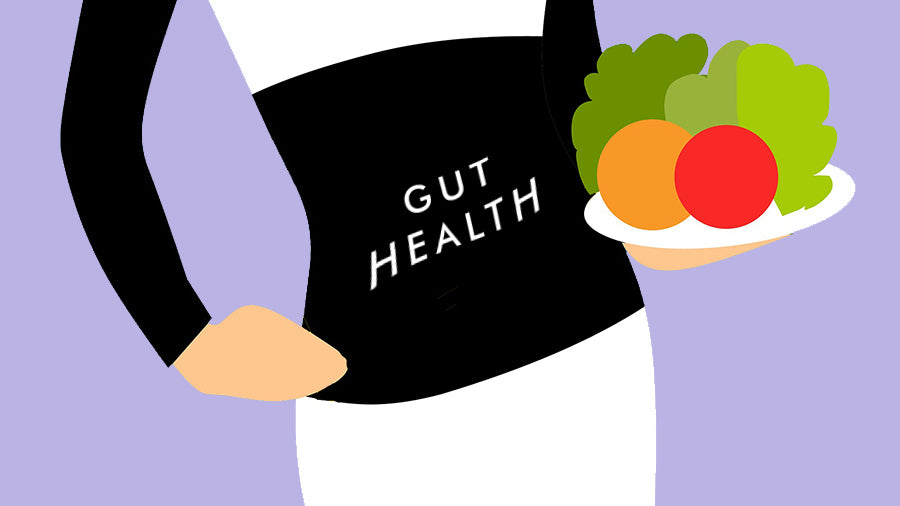Gut Health
Gut health! Everyone’s talking about it, but what is it exactly, why does it matter, what can we do to maximize it and what is the microbiome? We’re here today to answer your questions.
The ‘gut’ refers to your gastrointestinal system that breaks down and absorbs food. The gut lining is a densely folded membrane that if stretched out would occupy more than two tennis courts (!). It is the largest surface area in your body and therefore the most exposed to the ‘outside world’ via anything we consume. Its job is to absorb what we need, and reject what we don’t.
The gut is also home to the microbiome, or ‘commensal gut bacteria’. Numbering in the trillions, these microorganisms do many things, including ensuring proper development of the immune system, breaking down edible fibres and providing defense against harmful pathogens. The microbiome also produces and metabolises neurotransmitters that regulate our mood, energy and sleeping patterns such as dopamine, serotonin, norepinephrine and melatonin.
Gut health and immunity are strongly linked. Around 80% of your immune system is in your gut, as gut-associated lymphoid tissues (GALT), which is part of your mucosal-associated lymphoid tissue (MALT). In addition, all of the cells that regulate the immune system are located in the digestive system.
The function and microbial balance of the gut may be negatively impacted by many features of modern life: processed foods, stress, infections, antibiotics and other medications, lack of sleep and of course exposure to foods we are intolerant to (e.g. gluten exposure when you have celiac disease). An upset gut may become inflamed, potentially leading to a loosening of the tight junctions which create the seal between your gut and your bloodstream. This allows incompletely digested food to enter circulation, leading to a range of issues.
Symptoms of a dysregulated gut may be the expected: bloating, gas, diarrhoea, reflux, constipation and abdominal pain, or more vague: brain fog, fatigue, achey joints, autoimmunity, allergies or skin problems. You may become intolerant to a food you could previously eat or develop a nutrient deficiency through malabsorption.
How do we ensure a healthy gut?
Chew your food. Digestion begins in the mouth. Chewing well is a great step to improving your gut health.
If you suspect a food intolerance, see an expert. A doctor, Registered Nutritionist or Registered Dietitian should be able to get you started toward identifying any food culprits.
Address stress! The vagus nerve, which is part of your parasympathetic nervous system, not only responds to stress, but also controls function of various parts of digestion. Secretion of saliva and digestive enzymes, stomach peristalsis and release of bile are all affected by stress through the vagus nerve. A good tip is to practice some deep diaphragmatic (tummy) breaths before eating, and eat in a relaxed environment.
Collagen. Increasing your collagen intake from bone broths and supplements delivers anti-inflammatory compounds to your gut and helps repair the gut lining.
Probiotics! Probiotics contain actual bacteria that may colonise your gut where needed. Fermented foods such as sauerkraut, fermented veges, yogurt, pickles, kimchi, tempeh, sourdough and kombucha are all probiotics. You may also choose a high quality probiotic supplement, such as our Probiotic+. Look for one that has a high count of live bacteria, at least 10 billion, and that contains at least one spore-forming organism (B. coagulans, B. subtilis and B. clausii are the most common ones).
Prebiotics! Prebiotics are the fibres that feed your gut bacteria, helping to maintain and healthy balance. Aiming for 30 different whole plant foods a week is a good benchmark for prebiotic food intake. If you’re taking a probiotic supplement, we’d recommend choosing one such as Probiotic+ that also contains a scientifically researched prebiotic to further nourish your gut bacteria.
With a bit of care you can put your digestive issues behind you and experience a new level of health. How good would that be?








